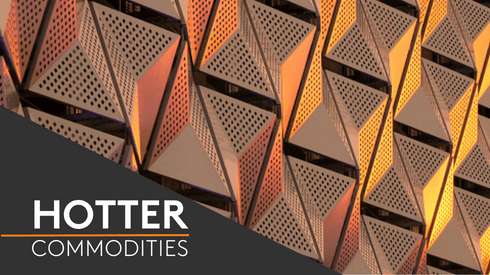If the higher duties result in reduced supplies from Russia, that would have a big impact as it is the third-biggest source of US aluminium imports.
“This decision gives the United States the ability to apply the full force of the (anti-dumping) law to address the market distortions caused by increasing interference from the Russian government in their economy,” the Department of Commerce said.
Dumping takes place when a foreign producer sells products in the US at a price below that in its home market, or lower than its cost of production and anti-dumping (AD) and countervailing duties (CVD) are intended to offset the effect of any dumping and unfair government subsidies.
There had been speculation that revoking market economy status was likely to be the US’s next move in response to Russia’s invasion of Ukraine. Washington had granted Russia market economy status in 2002, ahead of its admission to the World Trade Organization (WTO) in 2012.
“The Aluminum Association continues to support efforts by the United States and its allies to address the ongoing crisis in Ukraine,” a spokesman for the trade association said.
“By removing Russia’s market economy status, the US can apply more stringent anti-dumping laws in any future AD/CVD proceedings involving metals or other Russian imports,” he added.
Russia faces higher duties in future anti-dumping cases
“This [revocation] means that if a new anti-dumping case is filed against Russia, the [US] Department of Commerce will use its non-market economy methodology to calculate the level of dumping. This is the same methodology that it uses in cases involving products from China and Vietnam,” according to Robert DeFrancesco, a partner at Washington DC law firm Wiley Rein.
Such a move could potentially lead to duty levels on Russian goods exceeding 100%, as already happens with some Chinese products, although DeFrancesco said: “It would depend on the facts of the case, but [it] is possible.”
Another Washington DC-based trade lawyer, Edward Thomas, from the Morris, Manning & Martin law firm, said: “As a practical matter, it means that [the] Department of Commerce’s dumping margins calculated in Russian cases are likely to increase significantly.”
“The reason [the Department of Commerce] generates such high margins for non-market economy dumping cases is because [it uses] surrogate values. For China, for example, the [department] does not] use the costs reported by [the] Chinese companies [but] instead finds surrogate values from other countries, [which can] lead to very high dumping margins,” Thomas said.
“There is [currently] only one AD order on an aluminium product from Russia – foil – and the rate is already quite high (62.18%),” he added.
Most Favored Nation status already lost
Other duties on Russian aluminium imports were increased in April 2022 when the US took away Russia’s Most Favored Nation (MFN) status. That added duties – ranging from 10.5% to 40% depending on the product – to the 10% most aluminium importers pay under the US’s Section 232 tariffs.
And, since mid-October, there has been renewed talk that the US might ban Russian aluminium outright.
Russian aluminium imports accounted for around 4.4% of US demand in 2021, investment bank Morgan Stanley said in a research note on October 12.
“If a ban, or punitive tariffs, were to be put in place, this could tighten the US domestic market – although demand has been weakening – and could provide support to premiums,” Morgan Stanley said.
Boost for US premiums
Some market participants took Thursday’s revocation as bullish signal.
“It’s reasonable to assume that premiums will increase, especially for value-added products, such as billet,” one alloy producer told Fastmarkets.
Russia supplies more value-added aluminium products than the standard P1020A primary metal.
That benchmark aluminium premium began rising in early November, having previously been in a decline since early May.
Fastmarkets assessed the aluminium P1020A premium, ddp Midwest US at 19-22 cents per lb on Tuesday, up from 19.50-20.00 cents per lb on November 1 and 19-20 cents on October 28, which was its 2022 low point.




